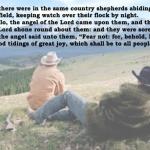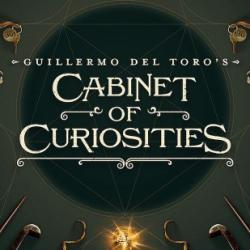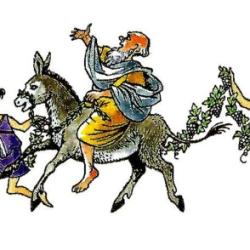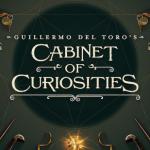An old C.S. Lewis quote has been circulating on social media lately as a way of poking at the “anti-woke” White Christianity that has become the loudest, and maybe largest, representative of the faith here in America.
The quote is from Christian Reflections, a compilation of some of Lewis’ articles, lectures, and papers put together after his death by his friend and colleague Walter Hooper. This includes an essay on the Psalms that revisits some of the same territory covered in Lewis’ 1958 Reflections on the Psalms.

Psalms is a fun little book because it’s idiosyncratically personal.* It’s not a pious devotional, but a witty, engaging conversation with Lewis about the things in the Psalms that puzzle, perplex, or perturb him.
And mostly that’s the stuff about vengeance and cursing. “Reflections on the Psalms” could more accurately have been titled “Reflections on What It Means That Our Scriptural Canon Includes Something as Vicious and Nasty and Unsettling as Psalm 109.”
Of these vindictive and vengeful Psalms, Lewis writes:
We must not either try to explain them away or to yield for one moment to the idea that, because it comes in the Bible, all this vindictive hatred must somehow be good and pious. We must face both facts squarely. The hatred is there — festering, gloating, undisguised — and also we should be wicked if we in any way condoned or approved it, or (worse still) used it to justify similar passions in ourselves. Only after these two admissions have been made can we safely proceed.
Squaring up against that hatred, then, he contemplates how such anger is “the natural result of injuring a human being.” It’s what we ought to expect to see when someone is injured, cheated, or crushed beneath a boot. “Take from a man his freedom or his goods and you may have taken his innocence” by tempting him to wrath and resentment.
The natural result of cheating a man, or “keeping him down” or neglecting him, is to arouse resentment; that is, to impose upon him the temptation of becoming what the Psalmists were when they wrote the vindictive passages. He may succeed in resisting the temptation; or he may not. If he fails, if he dies spiritually because of his hatred for me, how do I, who provoked that hatred, stand? For in addition to the original injury I have done him a far worse one. I have introduced into his inner life, at best a new temptation, at worst a new besetting sin. If that sin utterly corrupts him, I have in a sense debauched or seduced him. I was the tempter.
And here, in this “reflection” from 1958, Lewis heads into a hortatory tangent where he muses on what this means for individuals interacting individually with one another: “I … am exceptionally blessed in having been allowed a way of life in which, having little power, I have had little opportunity of oppressing and embittering others. Let all of us who have never been school prefects, N.C.O.s, schoolmasters, matrons of hospitals, prison warders, or even magistrates, give hearty thanks for it.”
The essay on the Psalms in the posthumous Christian Reflections seems like a later expansion on this chapter from his book on the Psalms. This is the source of that quote that’s been circulating on social media. Revisiting this idea of injustice as a kind of double sin that also tempts its victims to wrath, Lewis mentions another example that goes beyond the petty interpersonal oppressions of school prefects and schoolmasters:
We had better look unflinchingly at the sort of work we have done; like puppies, we must have “our noses rubbed in it.” … We ought to read the psalms that curse the oppressor; read them with fear. Who knows what imprecations of the same sort have been uttered against ourselves? What prayers have Red men, and Black, and Brown and Yellow, sent up against us to their gods or sometimes to God Himself? All over the earth the White Man’s offense “smells to heaven”: massacres, broken treaties, theft, kidnappings, enslavement, deportation, floggings, lynchings, beatings-up, rape, insult, mockery, and odious hypocrisy make up that smell.
So there’s your “woke C.S. Lewis” quote.
This is, indeed, exactly the sort of quote that’s bound to give anti-“woke” white Christians the howling fantods. It’s easy to imagine how angrily they would denounce such a statement if it had come from Jemar Tisby or Ibram X. Kendi or Kristin Kobes Du Mez or Howard Zinn or any of the other writ ers these anti-woke white Christians have demonized as the bogeymen of some supposed Woke Menace. And it’s grimly amusing to force them to squirm when confronted with such a statement from a beloved and respected figure like C.S. Lewis.
But I don’t think Lewis really is quite woke here. He is, rather, only half awake, like when one’s sleep is interrupted by a frightening nightmare and one lies, still in bed, still partly in the thrall of that disturbing dream.
The problem here is that Lewis remains preoccupied with “our” spiritual status. The focus is entirely on the standing of the “us” and the “we” that he identifies here as “White Men.” That spiritual standing hinges on whether or not our victims have forgiven us. We must hope that they have or else, Lewis says, we will be found doubly guilty — guilty first of their oppression (the “massacres, broken treaties, theft, kidnappings, enslavement, deportation, floggings, lynchings, beatings-up, rape, insult, mockery,” etc.) and guilty second of having tempted or seduced them into the kind of sinful wrath epitomized by Psalm 109.
Without the forgiveness of these victims, we are doubly guilty and doubly damned, Lewis suggests. And so he argues that we must hope for and wish for and perhaps even beg for that forgiveness.
All of which still leaves us lying in bed, shuddering from the fearful nightmare. It is, quite obviously, not enough. Lewis makes an analogy here between “the White Man’s offense” and “A man, now penitent, who has once seduced and abandoned a girl and then lost sight of her.” Such a man, he says, “had better not avert his eyes from the crude realities of the life she may now be living.”
True, but inadequate. This predatory seducer and victimizer is not merely obliged not to avert his eyes, but to make amends and to offer restitution and support — to do whatever he can to make things right with her. That is what it means for such a man to truly be “penitent.” If his penitence consists merely in “rubbing his nose in it” and then shambling around feeling vaguely guilty and hoping to be forgiven then such a man is still half asleep in bed.
If our actions and our history require forgiveness, then we need to get up, get out of bed, get dressed, and get to work making amends.
Lewis’ admonition to “read the psalms that curse the oppressor; read them with fear” needs to take us beyond where Lewis goes in these reflections. It demands a “penitence” that involves more than an attitude of remorse. “You cannot fast as you do today and expect your voice to be heard,” Isaiah says of such a half-awake half measure.
What it demands, Isaiah says, is:
To loose the chains of injustice
and untie the cords of the yoke,
to set the oppressed free
and break every yoke.
To share your food with the hungry
and to provide the poor wanderer with shelter—
when you see the naked, to clothe them,
and not to turn away from your own flesh and blood.
Then your light will break forth like the dawn,
and your healing will quickly appear;
then your righteousness will go before you,
and the glory of the Lord will be your rear guard.
If “we” require forgiveness lest we seduce those we have oppressed into the sin of wrath, then we need to do whatever we can to earn this unearnable forgiveness.
What does any of that have to do with Christmas? Well, for Lewis that connection comes on the following page. After urging us to “read the psalms that curse the oppressor; read them with fear,” Lewis goes on to say, “It is from this point of view that the Magnificat is terrifying.”
Mary’s song is an essential part of the Christmas story. It is also, Lewis notes, a psalm wholly steeped in the same tradition as the songs we have in Psalms, and one that echoes the themes of those disturbingly vindictive and vengeful passages like Psalm 109. But the Magnificat is almost more fearful because here, “There are no cursings … no hatred, no self-righteousness. Instead, there is mere statement.” The powerful tumble from their thrones and the rich are sent away empty. The poor and hungry and humble are lifted up. That’s just how this story ends for both sides, Mary says, and Lewis correctly recognizes that this is “terrifying” for the particular “we” and “us” that he is addressing.
But we don’t need to be stuck there in that fearful and terrifying state, half awake but still half asleep. We can get up, get out of bed, and yell down from the window “What’s to-day, my fine fellow?”
“Best and happiest of all, the Time before him was his own, to make amends in!”
That is what being really awake looks like. And that, we’ve been told, is what Christmas is all about.
* “It may appear to some that I have used the Psalms merely as pegs on which to hang a series of miscellaneous essays,” Lewis writes in the introduction to that book:
I do not know that it would have done any harm if I had written the book that way, and I shall have no grievance against anyone who reads it that way. But that is not how it was in fact written. The thoughts it contains are those to which I found myself driven in reading the Psalms; sometimes by my enjoyment of them, sometimes by meeting with what at first I could not enjoy.
He also warns the reader, in that introduction: “I dare say I am a much more annoying person than I know.”

















